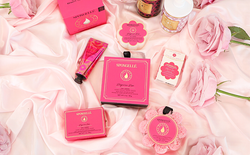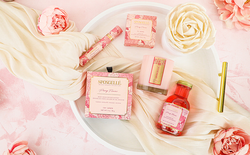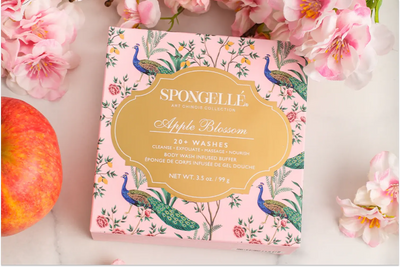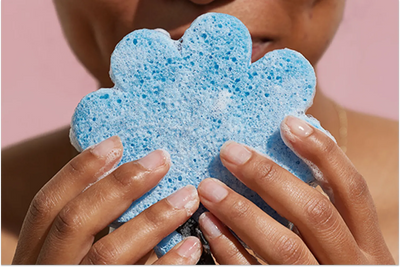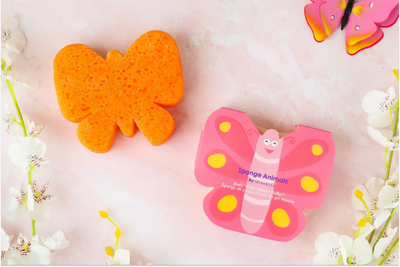Glycerin is an ingredient you’ve probably seen on the labels of your bath, body, and household products. It dwells in personal care items, foods, and pharmaceutical products as a humectant moisturizer, natural preservative, and filler. Glycerin is a byproduct of plant and animal oils from soap manufacturing. So, is glycerin vegan? Let’s look into this further.
What Is Glycerin?
Glycerin is a water-soluble, odorless, colorless liquid with a gelatinous texture that occurs naturally in plant, animal, and human tissue. According to the Environmental Working Group (EWG), glycerin contains little to no toxicity concern for humans or the environment.
So, for this reason, glycerin’s use in various consumer products is prevalent. Since glycerin dissolves very easily in water and preserves moisture, its use in personal care products such as soap, cosmetics, and foods such as baked goods makes sense.
What Does Glycerin Do?
Some soaps cause dry skin, which is a less than desirable outcome from its use. That’s why most soaps, body washes, and lotions today contain glycerin. Glycerin is a hydrating humectant. Humectants are moisturizers used to help items retain their moisture, and they do this by attracting water from the air or deep within the skin.
This action helps to hydrate the skin and hair when products containing glycerin are used by allowing the skin to attract and retain its natural moisture. Glycerin softens the skin without causing it to feel oily or greasy.
When used in food items, glycerin helps baked goods retain their moist, bouncy texture, prevent sugar from crystallizing, and preserve flavor.
What Is Glycerin’s Purpose in Soap?
Have you ever wondered how some moisturizing soaps claim they moisturize the skin while also cleansing? Choosing a soap containing glycerin ensures your skin doesn’t become dry and irritated.
Glycerin is an ingredient that helps your skin maintain its natural moisture so that it doesn’t become dehydrated and dry when you use soap or lotions. Your skin can “breathe” because this humectant doesn’t create a barrier on top of your skin. Your skin remains moisturized without the use of fragrances, artificial colors, or preservatives.
Is Glycerin Vegan?
Glycerin, also known as glycerol or glycerine, originates from the fats of plants or animals. It is also a by-product of biodiesel production, which is less common. Some companies, such as Spongellé, use vegetable glycerin, which is vegan-friendly.
Vegan glycerin sources originate from soybean, corn, canola, sugarcane, coconut, or palm oils (some vegans avoid palm oil). Glycerin is a common ingredient in soaps, moisturizers, hair care, and makeup.
How Is Vegan Glycerin Made?
Plant-based glycerin forms when the forces of pressure, water, and high temperature combine to separate the source’s fats from the oils. This process is called the saponification (soap-making) process. Saponification involves a strong alkali being combined with the fatty acids.
The glycerin then undergoes a carbon bleaching process, ensuring it is pure and safe for food products. Glycerin may also be distilled to increase its concentration. The end product’s texture of vegetable glycerin is similar to a syrup due to its molecular structure.
How Is Non-Vegan Glycerin Made?
Tallow is a term that refers to the rendered form of animal fat that consists of triglycerides. This tallow is mixed with water and gradually heated from low to medium heat until it becomes thick and thoroughly melted. The mixture is then chilled overnight in a refrigerator and boiled the next day to remove excess water. The glycerin may also be strained to remove any impurities.
Common Uses for Vegan Glycerin
Glycerin is an odorless, colorless, and non-toxic ingredient that contains many uses, such as:
- Preservative - Glycerin acts as an auxiliary solvent and stabilizer, along with water or alcohol.
- Pharmaceuticals - Glycerin makes an excellent coating for pills and capsules because of its plastic-like texture when dried.
- Humectant - Glycerin pulls moisture from deep within the skin and the air to assist the skin in maintaining its natural moisture.
- Solvent - Glycerin aids in the dissolution of one chemical to another and is often used to prepare herbal mixtures.
- Foods - Glycerin preserves moisture, adds bulk, softness, smoothness, sweetness, and texture, and prevents the crystallization of sugar.
- Skincare - Science backs glycerin for its use for skin disorders, including dermatitis. Glycerin helps skin retain its moisture in salves, skin balm, soaps, lotions, and masks. It aids in wound healing and softening the skin while allowing it to breathe without causing a greasy or oily feeling.
Is Vegan Glycerin Safe for Use on Skin Conditions?
A small study on the effects of a glycerol-based emollient on atopic dermatitis proves that glycerin may help to improve the skin’s barrier. Glycerin may be helpful in skin conditions such as psoriasis and eczema and helps with wound healing for cracked, dry skin.
Psoriasis
Psoriasis is an inflammatory skin condition that causes an excessive buildup of skin cells, and this buildup results in scaly, itchy, dry patches on the skin. Glycerin (glycerol) helps skin cells mature at an average rate, hydrates the skin, and reduces inflammation which may contribute to less severe side effects of psoriasis. There isn’t much clinical research on the effectiveness of glycerin and psoriasis, so always talk with your doctor first before treating psoriasis with alternative methods.
Eczema
The leading causes of eczema are genetics, stress, and environmental triggers. Eczema results from the immune system’s overreaction to allergens and irritants that cause inflammation in the skin. It causes red, inflamed patches on the skin, usually on the face, neck, and hands.
Soaps containing vegan glycerin are generally safe for use on skin with eczema, and these soaps must be free of harsh fragrances and perfumes. Natural glycerine soaps moisturize and help heal eczema-prone skin.
The American Academy of Dermatology suggests using glycerin as an ointment or cream rather than lotion for relieving dry skin. Consult with your dermatologist before treating any diagnosed skin condition with alternative measures.
Dry Skin
Dermatologists often recommend moisturizers with active ingredients to help soothe, nourish, heal, and prevent dry skin. These ingredients include:
- Lactic Acid
- Glycerol
- Urea
- Ceramides
The goal is to hydrate your skin and restore its outer layer. In some cases, prescription moisturizers may be necessary. Talk with your doctor if you have excessively dry or irritated skin. These signs may indicate a more serious skin condition.
Is Vegan Glycerin Safe for Consumption?
Glycerin is recognized by the Food and Drug Administration (FDA) as a safe ingredient on their Generally Recognized As Safe (GRAS) list. At the same time, it is also rated environmentally non-toxic by the Environmental Working Group (EWG), with a rating of 1-2. The FDA has also permitted glycerin safe in food items for consumption.
Food products containing glycerin absorb entirely and quickly by the small intestine. Glycerin is not part of a balanced diet, but it is also not considered harmful when consumed in large amounts. There is no safe daily consumption amount; however, ingesting large doses of glycerin may cause the following:
- Hyperglycemia
- Thirst
- Nausea
- Headache
- Laxative effect
How To Choose the Right Soap
Glycerin is a naturally-derived ingredient that is used in soaps and other personal care products, and it helps to retain moisture in your skin and within the products themselves. When you know what exactly goes into the products you’re using, you have peace of mind while using them. It is essential to understand what is inside the products you use.
When a product label lists glycerin as an ingredient, it is usually a vegetable derivative that it contains. Vegetable glycerin is the most affordable and convenient type for manufacturers to produce. To ensure the product contains vegetable glycerin, contact the manufacturer. Most companies that use vegetable glycerin in their products label their goods as vegan or vegan-friendly.
To Sum It Up
There are vegan and non-vegan forms of glycerin. Most personal care products such as soap, lotion, and balms utilize vegetable-based glycerin, which is vegan-friendly. The FDA and EWG have deemed glycerin safe for humans, safe for the environment, and a non-toxic ingredient.
Spongellé is proud to be vegan-friendly and cruelty-free because our products contain vegetable-based glycerin that causes no harm to you, animals, or the planet. Spongellé takes pride in offering ingredients such as Pro-Vitamin B5, amino acids, coconut oil, olive oil, and plant-based extracts. Take the fragrance quiz to find your ideal fragrance match and start caring for your skin today.
Sources:
EWG's Guide to Healthy Cleaning | GLYCERIN | Substance | EWG
EWG Skin Deep® | What is GLYCERIN | EWG
CFR - Code of Federal Regulations Title 21 | FDA
Glycerin is safe, effective in psoriasis model | ScienceDaily
Eczema Resource Center | American Academy of Dermatology
Dermatologists' top tips for relieving dry skin | American Academy of Dermatology
Dry skin: Diagnosis and treatment | American Academy of Dermatology


